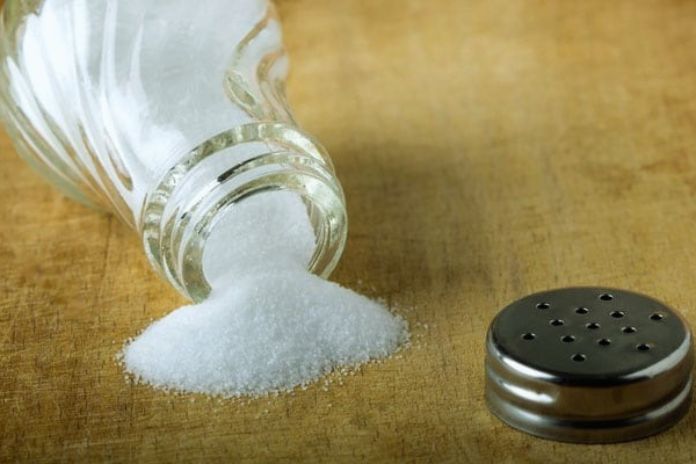Today we will discuss the issues involved in answering a ubiquitous question: can salt in food hurt?
The basis for being able to answer this question satisfactorily is balance. Indeed, many do not even want to eat food without salt, which has become synonymous with “tasteless,” but some care needs to be taken into account. Like many factors in life, too much salt in food can be harmful.
What Is Salt?
We start by correcting some very natural confusion. There is sodium, there is salt, and there is table salt.
In chemistry, salt is defined as a combination of substances resulting from the reaction of an acid with a base.
What we call “table salt” or “common salt” is one of those substances in salt, sodium chloride.
On the other hand, sodium is a mineral present in various foods (including sweets), which acts in various functions of our body.
Why Do We Need Salt?
Our body needs salt, but the only problem with this compound is the amount because excess salt overloads the kidneys, which can raise blood pressure, but when used correctly, there are no problems.
Consumed moderately, we maintain the ideal regulation of nutrients and water cells need; the body becomes more balanced.
How Much Can It Be?
The confusion starts with the information. Generally, foods contain the amount of sodium and not salt, with 2 grams of sodium corresponding to 5 grams of salt: this is the amount of daily consumption recommended by the WHO (World Health Organization). It is believed that the daily average is 12 grams of salt per day, which represents more than double that indicated by the WHO.
Our average salt in food can be very harmful to health. Children and the elderly should pay even more attention and reduce consumption. It is essential to seek professional guidance on functional clinical nutrition to balance food correctly.
How To Control It?
And how to measure the amount of salt we are ingesting? Starting with industrialized foods, they all bring the amount of sodium contained.
Keep in mind that even the pinch of salt in the salad makes a difference. Ideally, put this pinch in a measuring spoon to get an idea of how much salt and sodium you ingest.
What Happens When Consumption Is Excessive?
Our kidneys are responsible for filtering and excreting sodium. When we consume too much sodium, the kidneys are overloaded and put under pressure; thus, their functioning may be compromised.
Consuming too much sodium ends up “sucking” water from our cells, retaining too much fluid and making the work of blood vessels more difficult. This can cause high blood pressure in the vast majority of cases.
Chronic kidney disease is mainly a consequence of high blood pressure.
Is Salt In Food Necessary?
Not only can salt in food be harmful, but it’s also unnecessary. The amount of sodium we need can come from the foods we eat. Foods like meat, fish, and eggs can provide us with sodium.
But there is another issue to consider: iodine.
Table salt is enriched with iodine; this is required by law due to the low consumption of iodine; lacking in the body can cause more severe damage.
Tasteless Food
It may be that the problem for you is not reducing the amount of salt but eating “tasteless food.” At that time, let’s put creativity into action and take advantage of everything that, in addition to being healthy, also helps us make food tastier.
We start with the basics: onions and garlic. Onion helps regulate blood circulation, and garlic has a hypotensive action.
Pepper, in the correct dose, can also bring benefits. It facilitates digestion, improves the immune system, and even eliminates some harmful bacteria in the body. Its variety allows for many tasty combinations.
Lemon is also an excellent seasoning. In salads and fish, it produces a pleasant flavor and also facilitates digestion.
The list is vast; some like basil, rosemary, coriander, parsley, and mint. Nature offers us a multitude of gastronomic opportunities; try it!
Also Read: What Foods Help Fight Anxiety?

